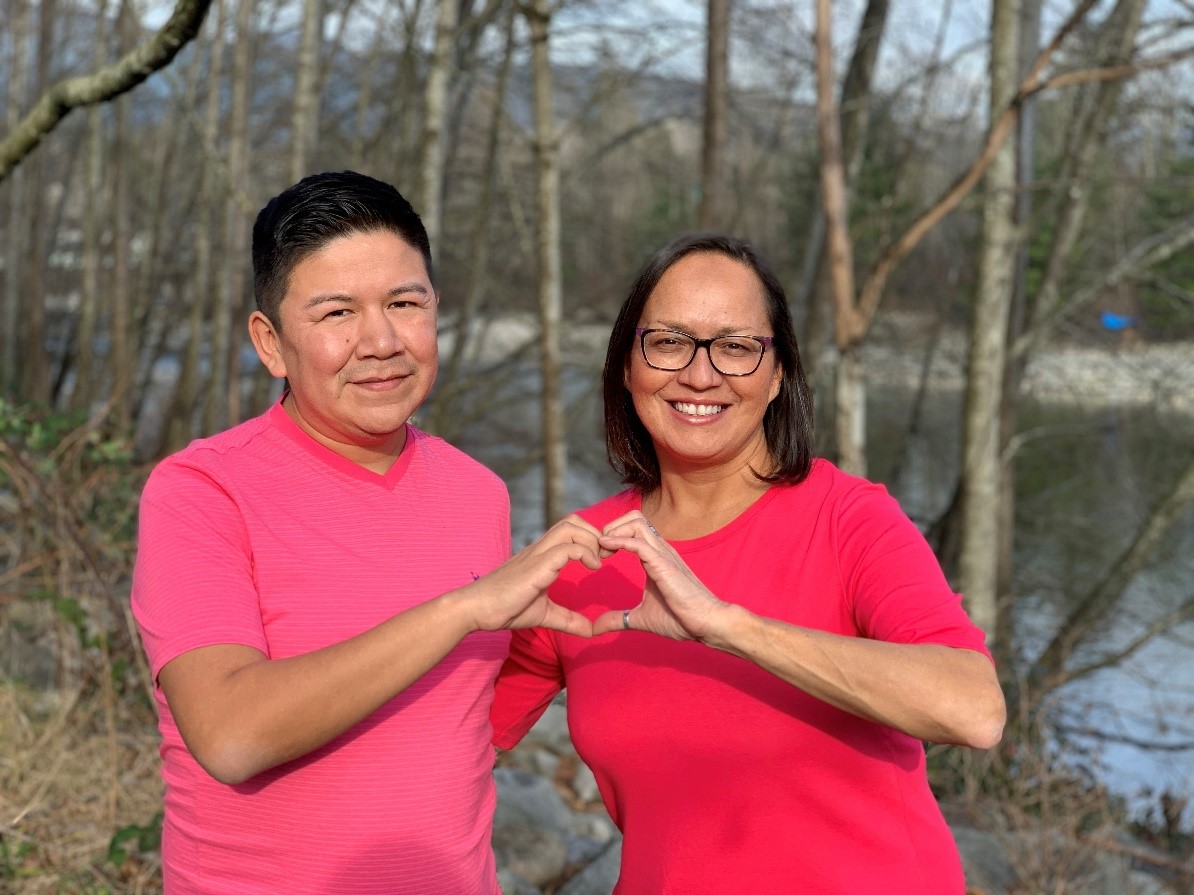
Wearing a pink shirt on February 26 symbolizes our stance against bullying. As First Nations people, we need to take it one step further and promote lateral kindness – using our cultural teachings to support one another, and not tear each other down.
Too often, lateral violence and bullying amongst ourselves hurts our own people.
Name-calling has a lasting impact
Dr. Nel, who is from Little Rapids First Nation, shares her bullying experience while growing up. Being a Sixties Scoop Survivor, Dr. Nel Wieman didn’t know how to speak her language or have a traditional name.
“I’ve had really awful things said to me,” shares Dr. Nel. “Being called ‘an apple’, red on the outside and white inside.”
“These experiences make me think that we don’t just have to look for instances of racism or discrimination outside of our Indigenous communities. Sometimes, greater harm comes from within our communities. We sometimes can think about, talk about, or behave negatively toward each other and cause great harm.”
Lateral Violence can cause cultural disconnections
Jordie Johnson from the Secwepemc Nation shares how bullying disconnected him from culture and himself. Before high school, Jordie danced at pow-wows and participated in cultural activities.
“When high school started, I was bullied almost daily, with most of the bullying being from First Nations people,” shares Jordie. “The bullying hurt beyond the moment it happened and impacted me for years after. It caused me to disconnect from my culture, and I didn’t find my way back for over 10 years.”
To reconnect with culture and have a feeling of belonging can take years or even a decade, as Jordie learned.
“In 2013, I was fortunate to work with First Nations Elders, including Alvin Dixon, Adeline Brown and Vera Jones,” shares Jordie. “Seeing their cultural pride, I was able to slowly feel and regain my purpose.”
Jordie has since received a traditional name, Sxoxomic.
Bullying can lead to extreme cases, including self-harm or suicide
Over the Christmas holidays, the Indigenous community was saddened to learn of the death of Inuk singer Kelly Fraser, by suicide. Dr. Nel shares, “I met Kelly briefly at the 2019 Inspire Awards, as she was one of the youth recipients. As many others have observed since her death, she outwardly seemed to be a very strong and determined young woman, with a vivacious personality.”
Kelly was outspoken about the impact of lateral violence on her own health and wellbeing, and ultimately it partly contributed to her death. Jordie and Dr. Nel’s experiences show how the impacts of lateral violence are not only painful in the moment, but can have enduring consequences.
Many of our cultural teachings include the message that we are all connected and that we are one. Healing and decolonizing from the effects of residential schools and Sixties Scoop, means acting with lateral kindness to each other to honour these teachings. It is time we start to focus on lifting each other UP and stop bullying amongst ourselves.
If you need help or someone to talk to:
24 Hour Kuu-us Crisis Line: 1-800-588-8717
Kids Help Phone: 1-800-668-6868
Learn more about Pink Shirt Day here.

